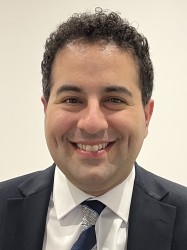BibTex format
@article{Mullish:2019:10.1136/gutjnl-2018-317842,
author = {Mullish, BH and McDonald, JAK and Pechlivanis, A and Allegretti, JR and Kao, D and Barker, GF and Kapila, D and Petrof, EO and Joyce, SA and Gahan, CGM and Glegola-Madejska, I and Williams, HRT and Holmes, E and Clarke, TB and Thursz, MR and Marchesi, JR},
doi = {10.1136/gutjnl-2018-317842},
journal = {Gut},
pages = {1791--1800},
title = {Microbial bile salt hydrolases mediate the efficacy of faecal microbiota transplant in the treatment of recurrent <i>Clostridioides difficile</i> infection},
url = {http://dx.doi.org/10.1136/gutjnl-2018-317842},
volume = {68},
year = {2019}
}

